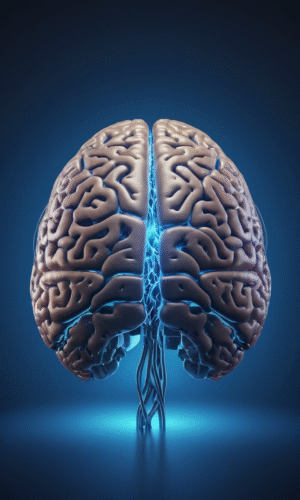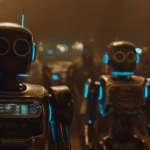Five years ago, hardly anyone believed AI could write functional code, generate realistic images, or handle complex customer queries. Today, ChatGPT, Stable Diffusion, and other generative models do all of that and much more. Fast-forward another five years, and the landscape of work will change even more dramatically.
That’s why your development matters more than ever. Whether you’re a developer, data analyst, manager, or HR business partner, your career depends on building skills that survive beyond today’s tools. At Cyberfulness, emphasize is on growth not as rapid chasing of trends but as a mindful, balanced approach – you build the technical fluency to stay relevant, the human adaptability to thrive, and the ethics to lead responsibly.
This article gives you the valuable answers. Which skills will matter most by 2030? Why they matter? How you can start building them today?
The urgent reality of skill transformation
The World Economic Forum’s Future of Jobs Report 2025 paints a clear picture.
39% of today’s core skills will be obsolete by 2030.
170 million new jobs will be created globally by 2030, while 92 million will disappear.1
77% of employers plan to upskill their people in response to AI and automation.2
In IT alone, 60% of companies face a skills gap in advanced tech such as AI and cybersecurity.3
For you, this means one thing: standing still is no longer safe. If you don’t evolve, you risk being replaced by another people or… systems… that we are currently working on.
Stay ahead of change
Here are the five skill domains that will define professional success in the next five years.
Artificial Intelligence

Generative AI is now part of daily workflows. From Copilot for developers to Canva for social media marketers, tools are augmenting work everywhere. Yet, a Coursera report found 62% of workers say they lack skills to use AI effectively.4 That gap is where your opportunity lies.
If you’re a software engineer, focus on:
- MLOps pipelines and deployment,
- Prompt engineering and AI fine-tuning,
- Responsible AI frameworks (bias mitigation, transparency).
If you’re a business professional, learn:
- How to integrate AI into decision-making,
- How to interpret outputs critically rather than blindly,
- How to design workflows where humans and AI complement each other.
Cybersecurity

Every new technology brings new risks. With hybrid work, IoT, and cloud-native architectures, attack surfaces are multiplying. That’s why cybersecurity has become one of the most demanding skills.
WEF lists cybersecurity as the second fastest growing technical skill category after AI and data and 21% of the skills employers seek today are cybersecurity-related.5
As a IT professional, you need to embed security into your everyday workflow. Secure coding, threat modeling, identity management, and zero-trust design are no longer optional.
And for non-technical professionals? Digital risk literacy is essential. If you handle data, contracts, or operations, understanding privacy and flexibility keeps you credible in front of clients and regulators.
Cloud-native fluency and automation

Software doesn’t live on a single server anymore. Systems are distributed, containerized, and automated from deployment to monitoring.
- The ARM Institute predicts over 500,000 new software jobs tied to automation and robotics in the next decade.6
- DevOps, Infrastructure as Code, and CI/CD pipelines are now baseline expectations in technical hiring.
If you want to stay competitive, master:
- Cloud-native design (e.g. AWS, Azure, GCP hybrid systems).
- Infrastructure as Code (e.g. Terraform).
- Container orchestration (e.g. Kubernetes).
For vast majority of white-collar professionals, fluency means being able to speak the language of digital systems. Knowing how tools integrate, automate, and scale allows you to collaborate effectively with technical teams.
Soft skills

Here’s the paradox – as technology advances, human skills become more valuable than ever. Employers repeatedly rank analytical thinking as the most important skill for 2025 and beyond.
Top human skills to develop:
- Analytical thinking – Framing complex problems and testing solutions,
- Creativity – Innovating beyond existing playbooks and processes,
- Communication – Translating technical complexity into actionable language,
- Leadership – Guiding teams through change and uncertainty.
According to ‘Built In’, developers who combine technical fluency with collaboration and emotional intelligence are significantly more impactful than those who only code.7
Domain expertise and curiosity

Technical skills open doors, but domain expertise helps you lead and deep business understanding helps you to generate real value.
If you know both ‘how’ to build and ‘why’ it counts, no matter if you are in finance, healthcare, manufacturing, or sustainability, you simply become irreplaceable.
A 2024 study found that skill-based hiring is rising fastest in AI and green jobs – employers value candidates with domain-relevant skills over traditional degree holders.8
Curiosity is the driver. Ask new questions, explore cross-industry applications, and never stop learning. Cyberfulness Professional growth category is right place to focus on, it will help you to stay updated and keep-up not only with current trends but with skills and aspects that will matter in the future.
How to future-proof your career without burning out?
It’s one thing to know what skills to build. It’s another to actually build them. Here’s a practical roadmap…
Why growth matters more than ever?
In my own career, I’ve watched technologies appear and vanish. Java frameworks that once dominated are now historical footnotes. Tools I thought were irreplaceable became irrelevant in two years. Yet what stayed constant was the mindset of growth.
The people who thrived weren’t those who stuck to one tool. They were the ones who adapted, learned, and reflected. They invested in skills beyond code like communication, security awareness, ethical design, curiosity.
That’s why I believe professional development is not optional. It’s the one constant in a volatile world.
And it doesn’t have to be frantic. With Cyberfulness, you choose growth that is mindful:
- Learning not just for speed, but for resilience and long-term return,
- Building skills not just for career gain, but for impact,
- Balancing ambition with awareness of ethics, security, and wellbeing.
If you want to be future-ready in 2030, start today. Pick one technical skill, one human skill, and one reflective practice. Grow them consistently. Five years from now, you’ll look back and realize that development was the smartest investment you ever made.
AI is not going to replace humans, but humans with AI are going to replace humans without AI.
Karim Lakhani
Final takeaway
The next five years will redefine work. The question is not whether the world will change, it will, the real question is whether you will change with it.
So ask yourself: Which skill will my future self thank me for starting learning today?
Sources
- WEF, “The Future of Jobs Report 2025” ↩︎
- WEF, “Future of Jobs Report 2025” ↩︎
- Zipido, “Upskilling And Reskilling In The Tech Industry Statistics” ↩︎
- Coursera, “Job Skills Report 2025” ↩︎
- SHRM, “2025 talent trends” ↩︎
- ARM Institute, “ARM Institute Publishes New Future Skill Requirements Report” ↩︎
- Builtin, “Here’s How Developers Can Overcome 2024’s Challenges in 2025” ↩︎
- Arxiv, “Skills or Degree? The Rise of Skill-Based Hiring for AI and Green Jobs” ↩︎
- Arxiv, “Software development projects as a way for multidisciplinary soft and future skills education” ↩︎





